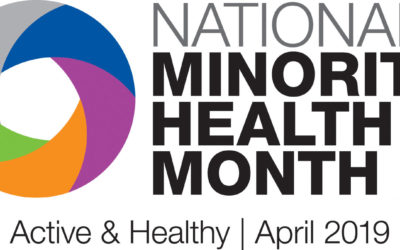THE ZIKA VIRUS AND YOU: WHAT YOU NEED TO KNOW
The Zika virus was first discovered in 1947 and is named after the Zika Forest in Uganda. It is primarily spread to people through the bite of infected Aedes mosquitoes. It can also be transmitted from a pregnant mother to her baby during pregnancy, and it can be sexually transmitted by a man to his partners. While most people who contract the virus have very mild or no symptoms, the Centers for Disease Control and Prevention (CDC) has established a link between Zika infection during pregnancy and serious birth defects and other poor pregnancy outcomes. According to the CDC, there is also the potential for other serious neurological impacts in some people who are infected with Zika.
Currently, outbreaks of Zika are occurring in many countries and territories around the world, but especially in South America, Central America, and the Caribbean. The State of Florida has also confirmed local transmissions of the Zika virus in Miami-Dade and Broward Counties. In addition, we know that the mosquito that transmits this virus lives in other parts of the southern United States, and that Zika can also spread in another type of mosquito that is present throughout much of the United States.
At this time, there is no vaccine to prevent this disease and no medicine to treat it. The best way for people to avoid infection by mosquitoes is to protect themselves from getting bitten. The CDC recommends taking the following action:
- Wear long-sleeved shirts and long pants.
- Stay in places with air conditioning and window and door screens to keep mosquitoes outside.
- Take steps to control mosquitoes inside and outside your home.
- Sleep under a mosquito bed net if you are overseas or outside and are not able to protect yourself from mosquito bites.
- Use Environmental Protection Agency (EPA)-registered insect repellents with one of the following active ingredients: DEET, picaridin, IR3535, oil of lemon eucalyptus, or para-menthane-diol. Choosing an EPA-registered repellent ensures the EPA has evaluated the product for effectiveness. When used as directed, EPA-registered insect repellents are proven safe and effective, even for pregnant and breastfeeding women.
To learn more about the Zika Virus, visit www.cdc.gov/zika
*Source: Centers for Disease Control and Prevention
OTHER NEWS
April Is National Minority Health Month
This April, join The Black Women’s Agenda, Inc. in celebrating National Minority Health Month. This year, the U.S. Department of Health and Human Services Office of Minority Health (OMH) will join partners in raising awareness about the important role an active lifestyle plays in keeping us healthy. Their theme for the 2019 observance is Active & Healthy, which will “allow OMH and minority health advocates throughout the nation to emphasize the health benefits of incorporating even small amounts of moderate-to-vigorous physical activity into our schedules.
Black Women Focus on Aging Mastery
The Black Women’s Agenda recently hosted a summit themed, “I Am the Change: Living Your Best Life at Every Age,” at Morgan State University in Baltimore, MD. Sponsored by AARP and featuring leading experts in the fields of health, education, and economic security, the event focused on the importance of health and wellness in the aging process.
“Too often black women are focused on everyone and everything except themselves,” said panel moderator Dr. Rockeymoore Cummings. “Our concern for and work on behalf of our families and communities competes with our ability to implement self-care strategies that support our physical, emotional, spiritual, and socioeconomic wellbeing.”
March is Women’s History Month
This March, join The Black Women’s Agenda, Inc. as we celebrate Women’s History Month. Congress first declared March as Women’s History month in 1987. Since then, every year there’s a Presidential Proclamation to announce the month and to honor women who have made a notable impact in history.
According to the National Women’s History Alliance, “In February 1980, President Carter issued the first Presidential Proclamation declaring the Week of March 8th 1980 as National Women’s History Week. In the same year, Representative Barbara Mikulski, who at the time was in the House of Representatives, and Senator Orrin Hatch co-sponsored a Congressional Resolution for National Women’s History Week 1981. This co-sponsorship demonstrated the wide-ranging political support for recognizing, honoring, and celebrating the achievements of American women.
© 2025 The Black Women’s Agenda, Inc. All Rights Reserved. Privacy Policy








